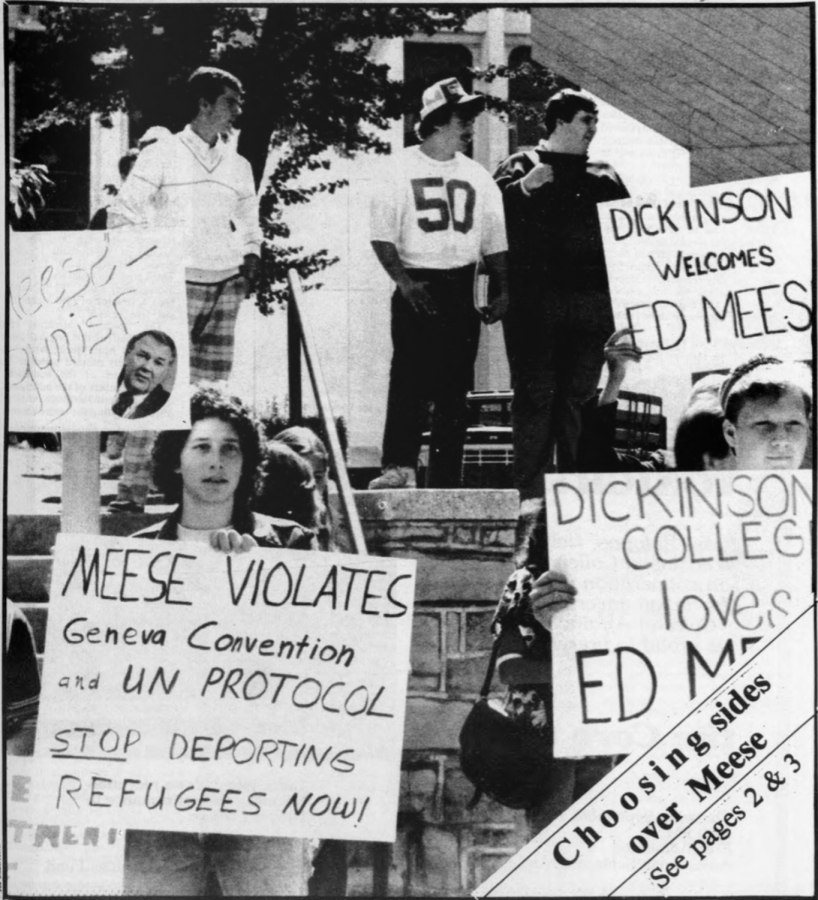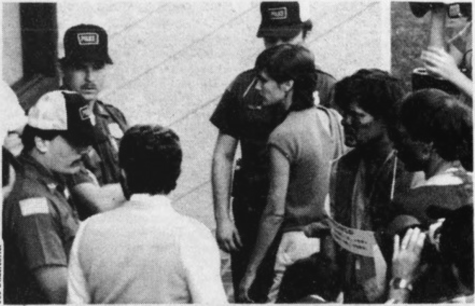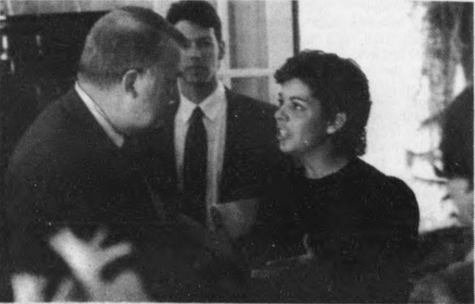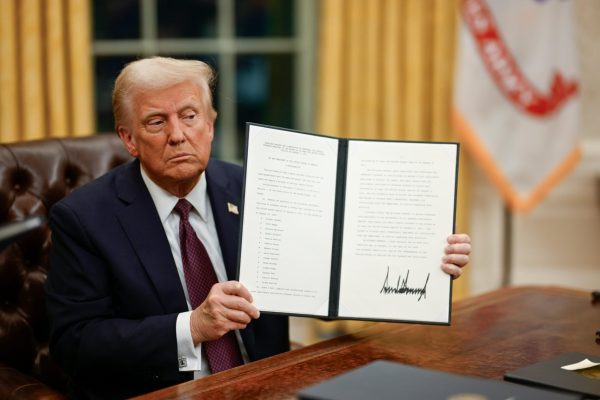From the Archives: Protests Precede Meese’s Speech
September 19, 1985
United States Attorney General Edwin Meese III made what was called “a major policy address” Tuesday in the Anita Tuvin Schlechter Auditorium.
The speech reinforced the Reagan Administration’s commitment to the abolition of race and gender quotas in American society, and drew criticism from a number of the College’s faculty in the “teach-in” which followed Meese’s speech.
One of the more visible protesters was Professor Nancy Mellerski of the French department. She carried a large orange poster on which “DOJ (Department of Justice) is a country club for fascists” was written in large black letters.
The sign, claimed Mellerski, was a play on words in reference to one of Meese’s own quotes published in last Sunday’s New York Times in which he said “Nicaragua is fast becoming a country club for terrorists.”
There was apparently a bit of confusion as to whether or not such signs were to be allowed in ATS during Meese’s speech. In a brief interview last week, E. “Lucky” Talbot, director of campus security, said that no signs or posters of any kind would be allowed in the auditorium.
Dean of the College George Allan said that he understood originally that no signs were to be allowed. “However,” Allan added, “later on it is my understanding that there was an agreement between the conservative and liberal elements,” allowing signs, but “limiting their size and number in ATS.”
However, both Mellerski and chairman of the College Republicans Mike Marcus said that they knew of no such agreement. Marcus said, “We were informed earlier by College Police that no signs were allowed in ATS. We didn’t bring any.”
Mellerski defended her position by saying that she was practicing her “right of free expression.” She continued, “I told him (the college police officer who approached them, wanting to confiscate their signs) that I was not informed of any rule to that effect. I asked him to bring Lucky Talbot to clarify the issue. He never came back.”
Chaplain Mary Anne Morefield was also a prominent demonstrator during Meese’s presence on campus. She, along with four other people, dressed as corpses and layed on the ground near the front entrance to ATS. This “guerilla theatre,” as she called it, was held to demonstrate against the Immigration and Naturalization Services’s recent crackdown on refugees from Latin America staying in the United States. The five “corpses,” according to Morefield, “represented five Latin American refugees that were deported back to Latin America by the INS and were subsequently killed.”
There has been some negative student and faculty reaction to Morefield’s protest. “It isn’t appropriate for the Chaplain of the College to be doing that when the Attorney General of the United States visits our college,” commented sophomore Melissa Klipp.
Professor Eugene Hickok of the political science department, co-founder of the Center for the Study of the Constitution, (which was responsible for bringing Meese to the College) said he was pleased with the way the events of the day progressed.
He remarked, “I did see some signs and actions which weren’t in what I would call good taste, but all in all, I felt that it was a good day–an important day–for the College as a whole.”
Hickok continued, “Meese presented a comprehensive and academic argument for official Justice Department policy. It was not a hard line, rhetoric-filled approach at all. He outlined what he felt the issues are and how they should be handled.”
LeRoy Zimmerman, Attorney General for the commonwealth of Pennsylvania, stated, “It was an excellent speech and a classic example of legal consistency in establishing policy. It was well-developed, especially in the use of nuts and bolts cases to back up his points.”
Meese said in a brief interview following his speech, “It was good to be here. You have a great campus here, and I felt myself made very welcome. I enjoyed it very much.” When asked about his reactions to the protests and signs both in the auditorium and out, Meese remarked, “To be honest with you, I didn’t see them. The glare of the (television camera) lights prevented me from seeing much off the stage.”
“I wasn’t bothered by the protests,” said Hickok. “Protest is a tradition in societies where free speech is guaranteed. I believe all sides–the speech, the protests, and the counter protests–helped to inject energy into the College. They started discussions on the Constitution and its implications on today’s society, which is what our program was designed to do. If we ever get the opportunity to have another high-ranking government official speak at Dickinson, I hope that it happens again.”









